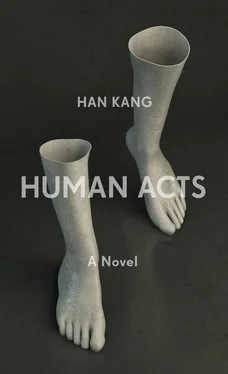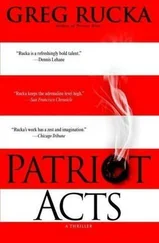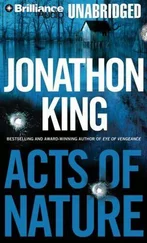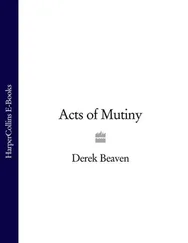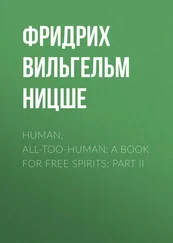Han Kang - Human Acts
Здесь есть возможность читать онлайн «Han Kang - Human Acts» весь текст электронной книги совершенно бесплатно (целиком полную версию без сокращений). В некоторых случаях можно слушать аудио, скачать через торрент в формате fb2 и присутствует краткое содержание. Год выпуска: 2016, Издательство: Portobello Books, Жанр: Современная проза, на английском языке. Описание произведения, (предисловие) а так же отзывы посетителей доступны на портале библиотеки ЛибКат.
- Название:Human Acts
- Автор:
- Издательство:Portobello Books
- Жанр:
- Год:2016
- ISBN:нет данных
- Рейтинг книги:4 / 5. Голосов: 1
-
Избранное:Добавить в избранное
- Отзывы:
-
Ваша оценка:
- 80
- 1
- 2
- 3
- 4
- 5
Human Acts: краткое содержание, описание и аннотация
Предлагаем к чтению аннотацию, описание, краткое содержание или предисловие (зависит от того, что написал сам автор книги «Human Acts»). Если вы не нашли необходимую информацию о книге — напишите в комментариях, мы постараемся отыскать её.
Human Acts
Human Acts — читать онлайн бесплатно полную книгу (весь текст) целиком
Ниже представлен текст книги, разбитый по страницам. Система сохранения места последней прочитанной страницы, позволяет с удобством читать онлайн бесплатно книгу «Human Acts», без необходимости каждый раз заново искать на чём Вы остановились. Поставьте закладку, и сможете в любой момент перейти на страницу, на которой закончили чтение.
Интервал:
Закладка:
It was because of the dreams.
In one dream I was being chased by a gang of soldiers. My breathing grew ragged as they gained on me. One of them shoved me in the back and knocked me onto my front. As soon as I rolled over and looked up at my attacker, he thrust his bayonet into my chest, smack bang into my solar plexus. At two o’clock in the morning I jerked awake, sat bolt upright and placed my hand on my breastbone. I spent the next five minutes struggling to breathe. When I passed my hand over my face my palm came away glistening; I hadn’t even been aware that I was crying.
A few days later someone came to see me. ‘In the thirty-three years between 1980 and now,’ this person said, ‘dozens of 5.18 arrestees have been held in secret underground rooms. Tomorrow, at three o’clock in the afternoon, and without any of this having been made public, they are all due to be executed.’ In the dream it was eight o’clock in the evening — only nineteen hours remaining until the the planned execution. How could I stop it from happening? The person who had told me all this had disappeared somewhere, and I was standing in the middle of the street clutching my mobile phone, totally at a loss. Should I call someone official, some kind of authority, and let them know what was about to take place? Even once I’d informed them, would they be able to stop it from going ahead? Why had this knowledge come to me of all people, someone who had no power whatsoever? Where should I go, how can I … as these words were smouldering inside my mouth, my eyes snapped open. Another dream. Just a dream. As I eased my clenched fists open I was muttering to myself in the darkness, only a dream, only a dream.
Another dream: someone makes me a present of a handheld radio. This is a time machine, they tell me, explaining that you are supposed to enter a given year, month and day in the digital panel. I key in ‘5.18.1980’. After all, if I wanted to describe it in a book then what better way than to actually experience it for myself? But the next moment I find myself standing alone at the intersection by Gwanghwamun station. The vast streets are deserted. Of course, because it’s only the time that changes. And I’m in Seoul, not Gwangju. I’d set the date to May so it ought to be spring, yet the streets were as cold and desolate as certain days in November. Frighteningly still.
A wedding I was obliged to attend took me out of the house for the first time in a long while. January 2013, and the streets of Seoul were just as they had been in my dream of a few days before. The wedding hall was festooned with glittering chandeliers. There was something shockingly incongruous about the people there, their flamboyant clothes, the way they were laughing as though nothing was wrong. How was such a scene possible, when so many people had died? I bumped into a critic, who jokingly took me to task for not having sent him my story collection. I couldn’t make sense of it. Not with so many dead. Unable to come up with a good enough excuse not to join the others for lunch after the ceremony, I simply chose my moment and slipped away.
The sky was so clear, the recent snow seemed scarcely believable. Oblique shafts of afternoon sunlight slant in through the windows of the gymnasium.
I stand up, chilled by the concrete seating, descend the stairs, open the door and step outside. I stare at the huge scaffolding filling my field of vision, at the corner of white wall it leaves exposed. I’m waiting. No one is going to come, but still I wait. No one even knows I’m here, but I’m waiting all the same.
I remember the winter when I was twenty, when I went alone to the hilltop cemetery in Mangwol-dong for the first time. I walked among the graves, looking for him. At the time, I didn’t know his family name. The only information I had was that he was called Dong-ho, a name that had easily lodged itself in my memory as it was similar to that of my uncle. And also that he had died at fifteen.
I missed the last bus going back to the city centre, so I had to walk along the darkening road with the wind at my back. After I’d been walking for some time I realised that I’d unconsciously placed my right hand on the left-hand side of my chest. As though my heart had fissured open. As though this were something I could carry around with me in perfectly safety, as long as I held it tight.
There were soldiers who were especially cruel.
When I first started poring over the documents, what had proved most incomprehensible was that this bloodshed had been committed again and again, and with no attempt to bring the perpetrators before the authorities. Acts of violence committed in broad daylight, without hesitation and without regret. Commanding officers who would have encouraged, no, even demanded such displays of brutality.
In autumn 1979, when the democratic uprising in the southern cities of Busan and Masan was being suppressed, President Park Chung-hee’s chief bodyguard Cha Ji-cheol said to him: The Cambodian government’s killed another 2 million of theirs. There’s nothing stopping us from doing the same. In May 1980, when the demonstrations were gathering force in Gwangju, the army used flamethrowers against unarmed citizens. The soldiers were provided with lead bullets, despite these having been banned by the international court of law on humanitarian grounds. Chun Doo-hwan, who had been so much in Park Chung-hee’s confidence that he was known as the former president’s adopted son, was looking into sending in Special Forces and subjecting the city to aerial bombardment in the unlikely event of the Provincial Office holding out. On the morning of 21 May, not long before the army opened fire on the massed crowds, he was seen arriving in a military helicopter and stepping out onto the ground of Gwangju. I saw him on the news: the young general with his air of self-possession. Striding briskly forwards from the helicopter, greeting the officer who came forward to meet him with a firm handshake.
I read an interview with someone who had been tortured; they described the after-effects as ‘similar to those experienced by victims of radioactive poisoning.’ Radioactive matter lingers for decades in muscle and bone, causing chromosomes to mutate. Cells turn cancerous, life attacks itself. Even if the victim dies, even if their body is cremated, leaving nothing but the charred remains of bone, that substance cannot be obliterated.
In January 2009, when an illegal raid by riot police on activists and tenants protesting their forced eviction from central Seoul left six dead, I remember being glued to the television, watching the towers burning in the middle of the night and surprising myself with the words that sprang from my mouth: But that’s Gwangju. In other words, ‘Gwangju’ had become another name for whatever is forcibly isolated, beaten down and brutalised, for all that has been mutilated beyond repair. The radioactive spread is ongoing. Gwangju had been reborn only to be butchered again in an endless cycle. It was razed to the ground, and raised up anew in a bloodied rebirth.
And there is still that young woman’s face.
That young woman whose photograph had made such a terrible impression on my eleven-year-old eyes, dead with a bayonet wound from her cheek to her throat, one eye cracked open and the other closed.
When those wretched corpses were lying in the waiting room of the bus terminal, sprawled in front of the train station; when the soldiers fell upon passers-by, beat them, stripped them to their underwear and forced them into a truck; when even the youths who’d stayed quietly at home were ferreted out and arrested; when the roads into the city were blockaded, and the phone lines were cut; when live shells were fired at crowds protesting with no other weapon than their naked bodies; when the main road became littered with a hundred corpses in the space of twenty minutes; when the rumour that the whole city would be massacred struck terror into the populace; when ordinary civilians gathered in twos and threes to defend the bridge and the local primary school, armed with the antiquated rifles they’d found at the army reserves’ training camp; when civil self-government was instated at the Provincial Office, after the authority of the central government had leaked away like an ebb tide.
Читать дальшеИнтервал:
Закладка:
Похожие книги на «Human Acts»
Представляем Вашему вниманию похожие книги на «Human Acts» списком для выбора. Мы отобрали схожую по названию и смыслу литературу в надежде предоставить читателям больше вариантов отыскать новые, интересные, ещё непрочитанные произведения.
Обсуждение, отзывы о книге «Human Acts» и просто собственные мнения читателей. Оставьте ваши комментарии, напишите, что Вы думаете о произведении, его смысле или главных героях. Укажите что конкретно понравилось, а что нет, и почему Вы так считаете.
